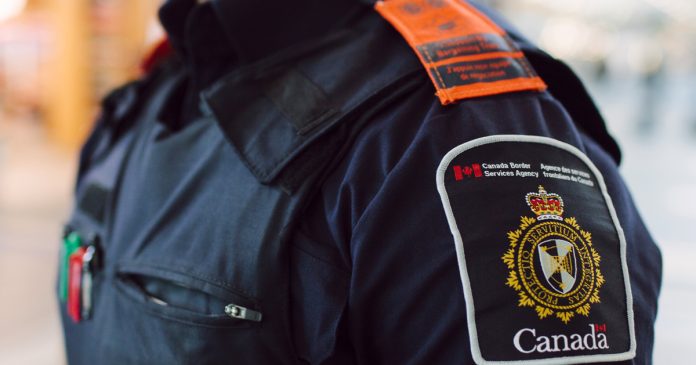A new Senate bill would allow Canadian Border Service (CBSA) agents to examine the contents of travellers’ smartphones, laptops and other devices under the threshold of “reasonable general concern.”
Bill S-7 aims to amend the Customs Act and the Preclearance Act, altering search protocol for those wishing to enter the country.
The threshold for search according to the bill does not offer a precise definition. This is in contrast to the well-established legal standards police must meet to conduct a search or make an arrest, including “reasonable suspicion” and “reasonable grounds to believe.”
The Canadian Civil Liberties Association (CCLA) has said that the threshold of “reasonable general concern” is “very low and legally novel” and does not adequately protect travellers’ privacy from border officials.
“Introducing such a low standard not only fails to protect individual privacy, but also fails to offer protections against racial and religious profiling that may stem from the excessive discretion such a minimalist standard will provide, and may even exacerbate such profiling,” wrote the CCLA.
Bill S-7 was introduced by Senator Marc Gold on behalf of Minister of Public Safety Marco Mendicino on Mar. 31.
The bill was not introduced to the House of Commons before it appeared in the Senate.
Mendicino stated that “(t)the proposed updates to the legislation will institute clear and stringent standards that must be met before a traveller’s device can be searched, while ensuring that the CBSA can continue to fight serious crimes like child pornography and keep our borders secure.”
A 2017 recommendation from the House of Commons’s standing committee on access to information states that the threshold be “reasonable grounds to suspect” to be required for the search of electronic devices.
In 2020, The Court of Appeal of Alberta ruled that border agents cannot search a person’s cell phone or laptop in the same fashion they do a suitcase or purse. The court ruled that inspecting the “biographical core of personal information” in a “suspicionless and unlimited” way was a violation of the right to be secure against unreasonable search and seizure as protected by Section 8 of the Canadian Charter of Rights and Freedoms.
Currently, a border official may examine a traveller’s digital device if they have concerns regarding admissibility of goods, identity, or failure to comply with Canadian laws. If asked to have their device examined, travellers are obligated to provide the password to access it.
Border officers should then put the device on airplane mode in order to disable incoming or outgoing information and will not have access to social media, banking websites or emails.
According to CBSA data, over 250 million travellers were processed at the border between Nov. 2017 and Dec. 2021. Of these, 33,373 had their devices examined and 12,457 of the examinations resulted in a customs or immigration-related contravention.





















